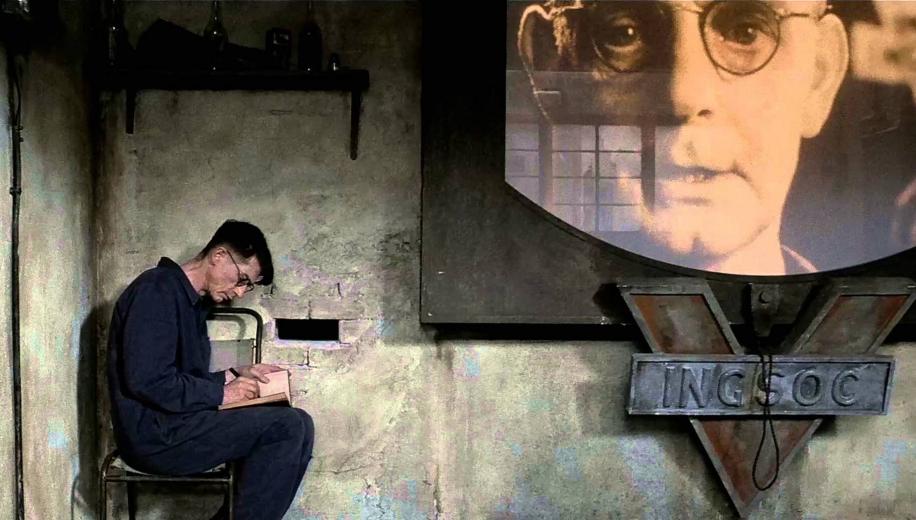
Michael Radford’s adaptation of George Orwell’s classic novel, 1984, has become something of a classic itself. 1984 (1984) is a masterclass in the power of production design which itself is only amplified by Roger Deakins breathtaking cinematography. As an adaptation, Radford’s passion project is pretty faithful, adding additional agency in the visual realm.
The genius of Radford’s aesthetic design for 1984 is matched only by the power of its cast. John Hurt’s Winston is excellent and has a kind of wonderfully awkward chemistry with Suzanna Hamilton’s Julia. But it is Richard Burton, in his last film role, as O’Brien that makes the movie. Burton’s cool demeanor and quietly powerful presence makes him a forces beyond human. The long scenes of O’Brien torturing Winston are among the greatest scenes of acting in film history.
In design, Radford’s 1984 recalls two distinct moments in British history. The first is the post-war period in the late forties which is created with exacting accuracy in Winston’s flashbacks to his childhood. The other period, set in the “now” of 1984, recalls the labor strikes of 1978 and 1979. Radford aligns Orwell’s narrative with these terrible moments of national trauma to predict a society of totalitarianism and total despair.
With this in mind it’s difficult not to see 1984 as an indictment of Thatcher’s England. 1984 is very much the rebellious expression of a specific moment. The look and feel of the film, from the rolling hills inside room 101 to the flickering face of Big Brother on countless monitors, have an aesthetic origin in the music video as well as the avant-garde.
Interestingly, Virgin Records financed Radford’s film with the provision that the Eurythmics do the soundtrack so as to have a soundtrack album with some possible hits. Radford, of course, wasn’t pleased with this and subsequent home video releases have either done away with the pop sounds of the Eurythmics or simply made them optional. The quagmire Radford found himself in with regards to the music for 1984 is, in a way, a fitting extension of the kind dystopia Orwell had envisioned. However the reality is that big corporations like Virgin Records tend to wield more power than government states.
